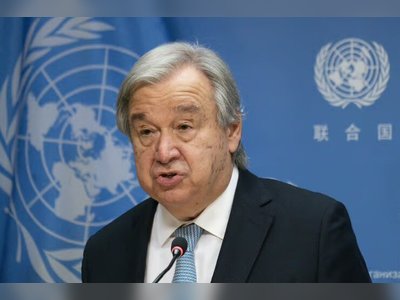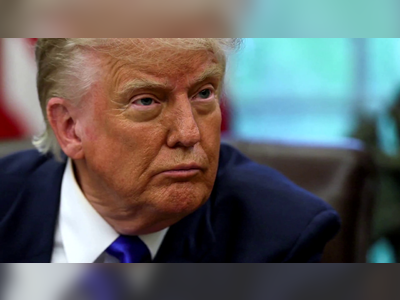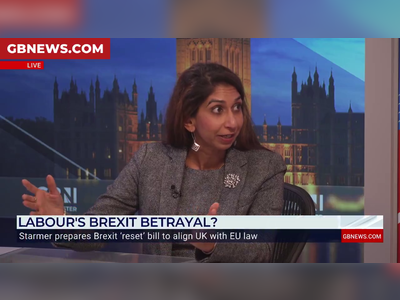Government Denies Regulations Altered to Favor Allies in Unified Institutional Medication Supply
The government refutes claims that changes to the decree on a unified institutional medication supply were made to favor government-aligned entities.
Index was the first to report, based on multiple professional organizations, that the decree not only reallocates the hospital care budget of 200 billion forints but may also violate competition and patient rights, as well as diminish patient safety.
Published in the Hungarian Gazette on February 22, 2024, was the government's decree 33/2024. on unified institutionary pharmacy services. As a precursor to this, Law LIII of 2023 coming into effect on July 7, 2023 amended the drug economy law, which prescribed the "unified institutional pharmacy service" for state-maintained inpatient care institutions. According to the amendment, the institutional medication supply for all state-maintained inpatient care facilities and for any voluntarily joining private inpatient care institutions will be undertaken by a "project company" (concessionaire) after a "publicly announced competitive procurement procedure" complying with the Public Procurement Act. The law modification empowered the government to create the detailed regulatory rules.
Last summer, the National Assembly amended the pharmaceutical law to allow for the introduction of a unified institutional medication supply in state-maintained hospitals. The government decree published on February 22 contains the detailed regulations of this explained a government source, who wished to remain anonymous, in an attempt to refute the claims of professional organizations and alleviate fears associated with the decree.
Anomalies Around the Public Procurement
Previously, Index had reported on the continuously re-emerging hospital debt. By November last year, the domestic hospitals had accumulated a debt of 130 billion forints, 90 billion of which the government covered by the year's end. Our source highlighted that the overriding part of these debts was owed to drug manufacturers and wholesalers.
When the state took over hospital maintenance from municipalities, it also standardized drug procurement. There are two thousand active substances registered for hospital use. From these, the procurement of 120-160 substances is centralized, with the remaining being typically managed by hospitals, most often through single-offer public procurement procedures.
"It is easy to see that a hospital's negotiating position is different whether it competes with one or several large drug manufacturers or wholesalers in a single procurement process. In most cases, it's the pharmaceutical wholesalers who perform the procurement for the hospitals," our source said.
Another legal issue raised is that public procurements happen at a fixed price, which applies to medications as well. However, the demand for the procured drugs doesn't only exist at the time of the contract signing but spans a subsequent period, depending on the volume of the order. Meanwhile, drug prices change generally, they rise, which we have reported on here. Nonetheless, the contract cannot respond to price changes; the procurement is carried out at a fixed price. Consequently, on multiple occasions, hospitals have entered into contracts with domestic wholesalers at higher prices compared to certain foreign wholesalers.
The decree aims to eliminate this by establishing a unified institutional medication supply under a European Union open concessionary public procurement process, making the hospital medication procurement single-channel. According to our source, this will make the medication's journey traceable all the way to the patient's bed. Although this is currently the case, it poses an incredible administrative burden for pharmacists and professional nurses.
The concessionaire is also expected to undertake developments in the state infrastructure, thereby enriching state assets. These include the previously mentioned drug procurement and the standardization of hospital pharmacy image, as well as an IT system development: a Unit Dose medication dispensing system, which portions necessary medications for each patient in lieu of manual medication dispensing by bedside healthcare professionals, thus preventing medicine waste.
"International experiences show that the Unit Dose system can reduce drug costs by 15-20 percent," our source pointed out. Overall, an improvement in service quality is anticipated from this standardization. As shown in our previous article, professional organizations support centralization but do not deem the integration of a concessionaire with profit interest justified.
The Government Claims Profit Interest is Unfeasible
Another fear of professional organizations is the prospect of business considerations taking precedence over professional ones in patient medication due to the introduction of a profit-motivated entity into the system. According to our government source, this fear is baseless because the pharmaceutical law states that the hospital's chief pharmacist cannot be directed on professional matters by the concessionaire. As an example, they mentioned that a pharmacy owner cannot give professional instructions to the employed pharmacists while serving a patient.
"The chief pharmacist and the pharmacists will remain state employees. Moreover, we expect the concessionaire to increase the number of pharmacists working in hospital pharmacies," said our source.
Long-Established Systems Breaking Down: Fears Are Understandable
When the potential competitive disadvantage for public pharmacies was discussed due to the decree, professional organizations considered this a genuine danger. However, our government source made it clear that additional institutional pharmacies are not expected beyond the existing 65; since the two segments currently operate separately with hospital pharmacies typically serving inpatients or those discharged public pharmacies are not at risk from the decree.
We asked why concerns remain among professional organizations regarding the decree if there is no reason for the profession to worry. In response, we were told that "it's understandable that disrupting a system that has been in place for 30 years, working well or poorly, can arouse fears and resistance to the new. The government aimed to dispel these doubts during preliminary discussions."
As for consensus on consultations: professional organizations lament that communication with political decision-makers ceased since last summer when they also expressed their reservations with the draft decree meanwhile, our source stated that there had been personal consultations.
The Wholesalers' Worries
The decree mandates that the concessionaire engages in wholesale activity. The industry sees this as troubling, not only because it could infringe upon competition law in the pharmaceutical wholesale and supply sectors but also because the wholesale license could predestine the concessionaire to play a role in determining wholesale drug prices, further distorting competition.
Our source elaborated that currently, domestic hospitals carry out drug procurement in several separate ways: through centralized procurement, their own efforts, or through the health insurer. In institutional medication supply, the concessionaire is tasked with retail-like duties, given that it operates the institutional pharmacy. However, when it comes to specific procurement processes, the concessionaire functions logistically and only in these instances performs wholesaler roles. These activities are distinct from one another.
"Having a license for wholesale activity doesn't equate to being a wholesaler; it only means that the concessionaire can deliver medication from the manufacturer to the patient when appropriately licensed."
"The wholesale sector is quite concentrated, with practically two major players covering the Hungarian market. We hope that the public procurement process will attract as many applicants as possible, and the best offer will be accepted," our source expressed.
Nonetheless, according to our information, wholesalers share similar concerns with the professional organizations about the decree.
Here Comes the Concessionaire
According to the industry, the cards have already been dealt; the future concessionaire a franchise system administrator or a private individual close to the government is easily identifiable. This is questionable because, as stated in the decree and confirmed by our government source: the project company will be designated within the framework of a European Union regulated procurement process, making its identity currently unknown. Nevertheless, professional organizations have reported that the concessionaire has already been lobbying the government.
This was refuted by a source close to the government.
The procurement process for appointing the project company will be conducted by the National Concession Office (NKOI) under the Prime Minister's Office, according to the decree, within this year as the company will commence operations from January 1, 2025.
Published in the Hungarian Gazette on February 22, 2024, was the government's decree 33/2024. on unified institutionary pharmacy services. As a precursor to this, Law LIII of 2023 coming into effect on July 7, 2023 amended the drug economy law, which prescribed the "unified institutional pharmacy service" for state-maintained inpatient care institutions. According to the amendment, the institutional medication supply for all state-maintained inpatient care facilities and for any voluntarily joining private inpatient care institutions will be undertaken by a "project company" (concessionaire) after a "publicly announced competitive procurement procedure" complying with the Public Procurement Act. The law modification empowered the government to create the detailed regulatory rules.
Last summer, the National Assembly amended the pharmaceutical law to allow for the introduction of a unified institutional medication supply in state-maintained hospitals. The government decree published on February 22 contains the detailed regulations of this explained a government source, who wished to remain anonymous, in an attempt to refute the claims of professional organizations and alleviate fears associated with the decree.
Anomalies Around the Public Procurement
Previously, Index had reported on the continuously re-emerging hospital debt. By November last year, the domestic hospitals had accumulated a debt of 130 billion forints, 90 billion of which the government covered by the year's end. Our source highlighted that the overriding part of these debts was owed to drug manufacturers and wholesalers.
When the state took over hospital maintenance from municipalities, it also standardized drug procurement. There are two thousand active substances registered for hospital use. From these, the procurement of 120-160 substances is centralized, with the remaining being typically managed by hospitals, most often through single-offer public procurement procedures.
"It is easy to see that a hospital's negotiating position is different whether it competes with one or several large drug manufacturers or wholesalers in a single procurement process. In most cases, it's the pharmaceutical wholesalers who perform the procurement for the hospitals," our source said.
Another legal issue raised is that public procurements happen at a fixed price, which applies to medications as well. However, the demand for the procured drugs doesn't only exist at the time of the contract signing but spans a subsequent period, depending on the volume of the order. Meanwhile, drug prices change generally, they rise, which we have reported on here. Nonetheless, the contract cannot respond to price changes; the procurement is carried out at a fixed price. Consequently, on multiple occasions, hospitals have entered into contracts with domestic wholesalers at higher prices compared to certain foreign wholesalers.
The decree aims to eliminate this by establishing a unified institutional medication supply under a European Union open concessionary public procurement process, making the hospital medication procurement single-channel. According to our source, this will make the medication's journey traceable all the way to the patient's bed. Although this is currently the case, it poses an incredible administrative burden for pharmacists and professional nurses.
The concessionaire is also expected to undertake developments in the state infrastructure, thereby enriching state assets. These include the previously mentioned drug procurement and the standardization of hospital pharmacy image, as well as an IT system development: a Unit Dose medication dispensing system, which portions necessary medications for each patient in lieu of manual medication dispensing by bedside healthcare professionals, thus preventing medicine waste.
"International experiences show that the Unit Dose system can reduce drug costs by 15-20 percent," our source pointed out. Overall, an improvement in service quality is anticipated from this standardization. As shown in our previous article, professional organizations support centralization but do not deem the integration of a concessionaire with profit interest justified.
The Government Claims Profit Interest is Unfeasible
Another fear of professional organizations is the prospect of business considerations taking precedence over professional ones in patient medication due to the introduction of a profit-motivated entity into the system. According to our government source, this fear is baseless because the pharmaceutical law states that the hospital's chief pharmacist cannot be directed on professional matters by the concessionaire. As an example, they mentioned that a pharmacy owner cannot give professional instructions to the employed pharmacists while serving a patient.
"The chief pharmacist and the pharmacists will remain state employees. Moreover, we expect the concessionaire to increase the number of pharmacists working in hospital pharmacies," said our source.
Long-Established Systems Breaking Down: Fears Are Understandable
When the potential competitive disadvantage for public pharmacies was discussed due to the decree, professional organizations considered this a genuine danger. However, our government source made it clear that additional institutional pharmacies are not expected beyond the existing 65; since the two segments currently operate separately with hospital pharmacies typically serving inpatients or those discharged public pharmacies are not at risk from the decree.
We asked why concerns remain among professional organizations regarding the decree if there is no reason for the profession to worry. In response, we were told that "it's understandable that disrupting a system that has been in place for 30 years, working well or poorly, can arouse fears and resistance to the new. The government aimed to dispel these doubts during preliminary discussions."
As for consensus on consultations: professional organizations lament that communication with political decision-makers ceased since last summer when they also expressed their reservations with the draft decree meanwhile, our source stated that there had been personal consultations.
The Wholesalers' Worries
The decree mandates that the concessionaire engages in wholesale activity. The industry sees this as troubling, not only because it could infringe upon competition law in the pharmaceutical wholesale and supply sectors but also because the wholesale license could predestine the concessionaire to play a role in determining wholesale drug prices, further distorting competition.
Our source elaborated that currently, domestic hospitals carry out drug procurement in several separate ways: through centralized procurement, their own efforts, or through the health insurer. In institutional medication supply, the concessionaire is tasked with retail-like duties, given that it operates the institutional pharmacy. However, when it comes to specific procurement processes, the concessionaire functions logistically and only in these instances performs wholesaler roles. These activities are distinct from one another.
"Having a license for wholesale activity doesn't equate to being a wholesaler; it only means that the concessionaire can deliver medication from the manufacturer to the patient when appropriately licensed."
"The wholesale sector is quite concentrated, with practically two major players covering the Hungarian market. We hope that the public procurement process will attract as many applicants as possible, and the best offer will be accepted," our source expressed.
Nonetheless, according to our information, wholesalers share similar concerns with the professional organizations about the decree.
Here Comes the Concessionaire
According to the industry, the cards have already been dealt; the future concessionaire a franchise system administrator or a private individual close to the government is easily identifiable. This is questionable because, as stated in the decree and confirmed by our government source: the project company will be designated within the framework of a European Union regulated procurement process, making its identity currently unknown. Nevertheless, professional organizations have reported that the concessionaire has already been lobbying the government.
This was refuted by a source close to the government.
The procurement process for appointing the project company will be conducted by the National Concession Office (NKOI) under the Prime Minister's Office, according to the decree, within this year as the company will commence operations from January 1, 2025.
AI Disclaimer: An advanced artificial intelligence (AI) system generated the content of this page on its own. This innovative technology conducts extensive research from a variety of reliable sources, performs rigorous fact-checking and verification, cleans up and balances biased or manipulated content, and presents a minimal factual summary that is just enough yet essential for you to function as an informed and educated citizen. Please keep in mind, however, that this system is an evolving technology, and as a result, the article may contain accidental inaccuracies or errors. We urge you to help us improve our site by reporting any inaccuracies you find using the "Contact Us" link at the bottom of this page. Your helpful feedback helps us improve our system and deliver more precise content. When you find an article of interest here, please look for the full and extensive coverage of this topic in traditional news sources, as they are written by professional journalists that we try to support, not replace. We appreciate your understanding and assistance.
















